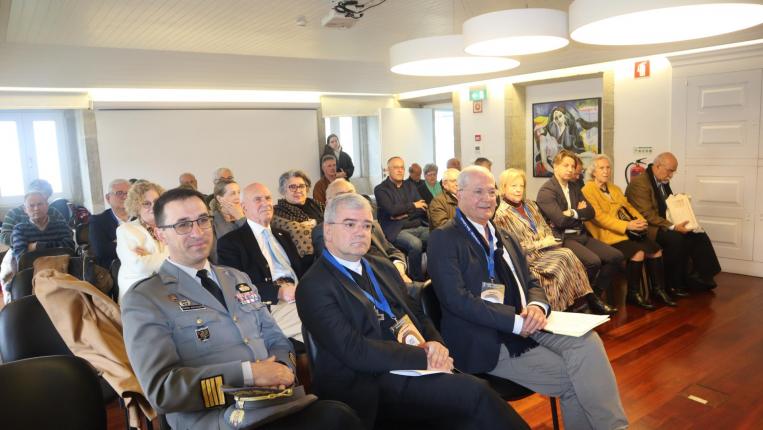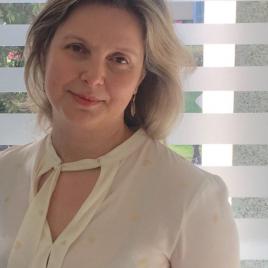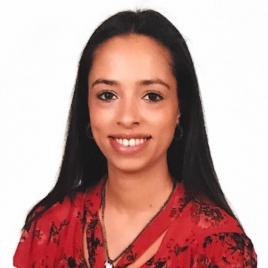Psychology is a scientific field of enormous social relevance that encompasses all aspects of our lives. Psychologists must base their work on scientific evidence in order to find answers to complex individual and social questions, in order to respond to these needs.
Therefore, in the Psychology degree we aim to train scientifically competent professionals, with a high professional sense, guided by ethical and deontological demands that translate into intervention with people, groups and organizations, capable of promoting and improving health, quality of life, well-being and integral development throughout life.
Why Psychology?
The Degree in Psychology has been in operation since 2004, having undergone curricular and pedagogical adaptation in accordance with the Bologna Model in 2006, and already has vast experience in training in this area. The course is accredited by the Higher Education Assessment and Accreditation Agency (A3ES) (ACEF/1819/0109612).
Training on the Psychology degree is governed by high standards of scientific and pedagogical quality, allowing students, in their first stage of training, to develop theoretical knowledge and generic skills in aspects such as the psychological, biological and social processes that explain human behavior, the assessment and diagnosis of problems and needs, the different models and techniques of psychological assessment and intervention in the various areas of Psychology (Clinical, Educational, Family, Organizational, Health), as well as in the practice of scientific research (following the principles of the Bologna Declaration, the requirements of the Order of Portuguese Psychologists (OPP) and the recommendations of the European Federation of Psychologists' Associations, included in the European Qualification Standard for Psychologists).
Employability Rate
The degree aims to provide students with basic training in psychology, which allows them to continue their academic and professional training and enter the job market, where we have seen a diversification of psychologists' areas of work in recent years and an increase in the number of integrated professionals. Official data from the Directorate General for Education and Science Statistics (2020) indicates that Psychology graduates from the FFCS have an employability rate of 93.3%.
Customise your degree
Como complemento da formação teórica e prática oferecida, o(a)s estudantes podem explorar as suas áreas de interesse e de especialização mediante a escolha de Unidade Curriculares (UC) Opcionais do plano de estudos.
Click on the links to watch the videos:
Vocational and Career Development
Group Psychology
Psychosexual Development
Work and Quality of Life
Learning Difficulties and Special Educational Needs
Psychology and Spirituality: Selected Topics
Specialize in an area of interest
Further studies
The degree does NOT have a professional character, as the autonomous professional practice of a psychologist implies attending a Master's Degree in Psychology, a necessary condition for registration with the OPP.
Thus, the Degree in Psychology allows for further study in an area of specialization, according to the interests and needs of the students' life contexts.
The Faculty of Philosophy and Social Sciences offers opportunities to continue training, through three Master's degrees, in the following specific areas of Psychology: Clinical and Health Psychology; Educational Psychology; Work and Organizational Psychology.
Integral development
In accordance with the inspiring principles of the Faculty of Philosophy and Social Sciences, the degree in Psychology is contextualized in an up-to-date Christian Anthropology, i.e. in dialogue with the sciences, humanities and culture of our time. Our aim is to train psychologists with a global profile to face the psychosocial challenges that require eco-developmental intervention.
In addition to excellent scientific training, we are concerned with the integral training of students, which is why, according to models inspired by Humanist Ethics, opportunities are offered for students' self-knowledge and personal development through participation in Mentoring/Tutoring programs, Community Service and/or Mobility Programs.
Want to know more about our Extracurricular Activities?
- Mentoring/Tutoring
- Welcoming and integrating first-year students
International Mobility - ERASMUS+
The European Action Program for University Student Mobility (ERASMUS) is a student exchange program founded by the European Commission in 1987, which allows students to study abroad for a period of 6 / 12 months.
According to the European Commission, in the 2019/20 academic year, more than 32,3361 students from 3,000 European higher education institutions and more than 35 countries were involved in this international exchange program, benefiting from the funding of this program.
The ERASMUS+ program has been strengthened to enable the deepening of relations between European Higher Education institutions and thus strengthen students' formal and non-formal learning opportunities, helping them to prepare for the current challenges of the world of work.
Recognizing the importance of this experience in the students' scientific and human formation, students on OUTGOING / INCOMING MOBILITY in the Degree in Psychology are accompanied by teachers and peers through a Mentoring program, which aims to support them in the successful completion, in personal and academic terms, of their ERASMUS experience.
Advantages for students (Erasmus+ Annual Report 2020):
- Facilitating entry into the job market;
- Support in reflecting on objectives and study plans/career plans;
- Opportunity to try out new teaching methods and learning practices;
- Promoting academic success;
- Promotion of transversal skills.
Registration and Accreditation
DGES
Registration No. R/A-Ef 1234/2011/AL02 on June 17, 2022A3ES
Accreditation date: July 22, 2020





